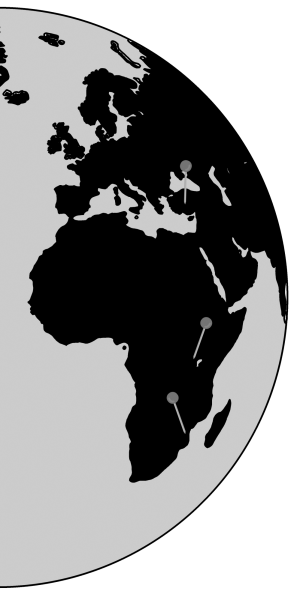Mozambique:
Venâncio Mondlane, presidential candidate for PODEMOS-the Optimist Party for the Development of Mozambique-is acting as a catalyst for reform, he has incited both peaceful and aggravated protests in the capital, Maputo. In the past month since the results of the elections, peaceful protesters have had tear gas thrown at and shot at by the military. Demonstrations emerged after Daniel Chapo, the candidate for the dominant party FRELIMO, the Mozambican Liberation Front, won the election. Throughout the past month, Facebook posts from government workers have brought up ballot counters that weren’t included in the final vote. In addition to the allegations of election fraud, many citizens are voicing concerns about economic stagnation, rising inequality, and the monopolization of political power by FRELIMO. The discontent has drawn international attention, with human rights organizations condemning the government’s violent response to peaceful protests. Mondlane’s rise as a reformist symbol has inspired hope among younger voters and civil society groups, who see this moment as pivotal for Mozambique’s democratic future.
Uganda:
Uganda’s federal court ratifies Anti-Homosexuality Act. This illegalizes gay marriage and those that are a part of the LGBTQ+ community to be sentenced to life in jail. Acts of “aggravated homosexuality” such as sex with a minor or vulnerable person, sex while being HIV/AIDS positive and incest are punishable by death. According to CNN, there are at least 50 cases as of 2023 of aggression towards those who identify as LGBTQ+, which include “so-called ‘corrective’ rape [a hate crime where people are raped because of their sexual orientation], outing, termination from employment, blackmail, threats of violence or physical attacks and incidents of mob justice, according to SRT [the Strategic Response Team].” Today, activists argue that this law is not only a grave human rights violation but also an erasure of pre-colonial African heritage. International outcry continues to grow, with human rights organizations and global leaders condemning the act as a threat to the safety, dignity, and freedom of Uganda’s LGBTQ+ community.
Turkey:
The Turkish government faces major backlash after numerous femicides (homicides towards females). Hundreds of protesters took to the streets in early October against to the numerous cases of females being murdered throughout Turkey in the victims’ residences. In 2024, 41% of the cases were committed by the victims’ husbands and in 2023, 65% of the cases happened in the victims’ homes. The femicide crisis in Turkey is horrifying, with nearly 300 women killed in 2024 so far. Activists blame the government’s failure to enforce protective laws, compounded by Turkey’s 2021 withdrawal from the Istanbul Convention-a critical international treaty designed to combat violence against women.
